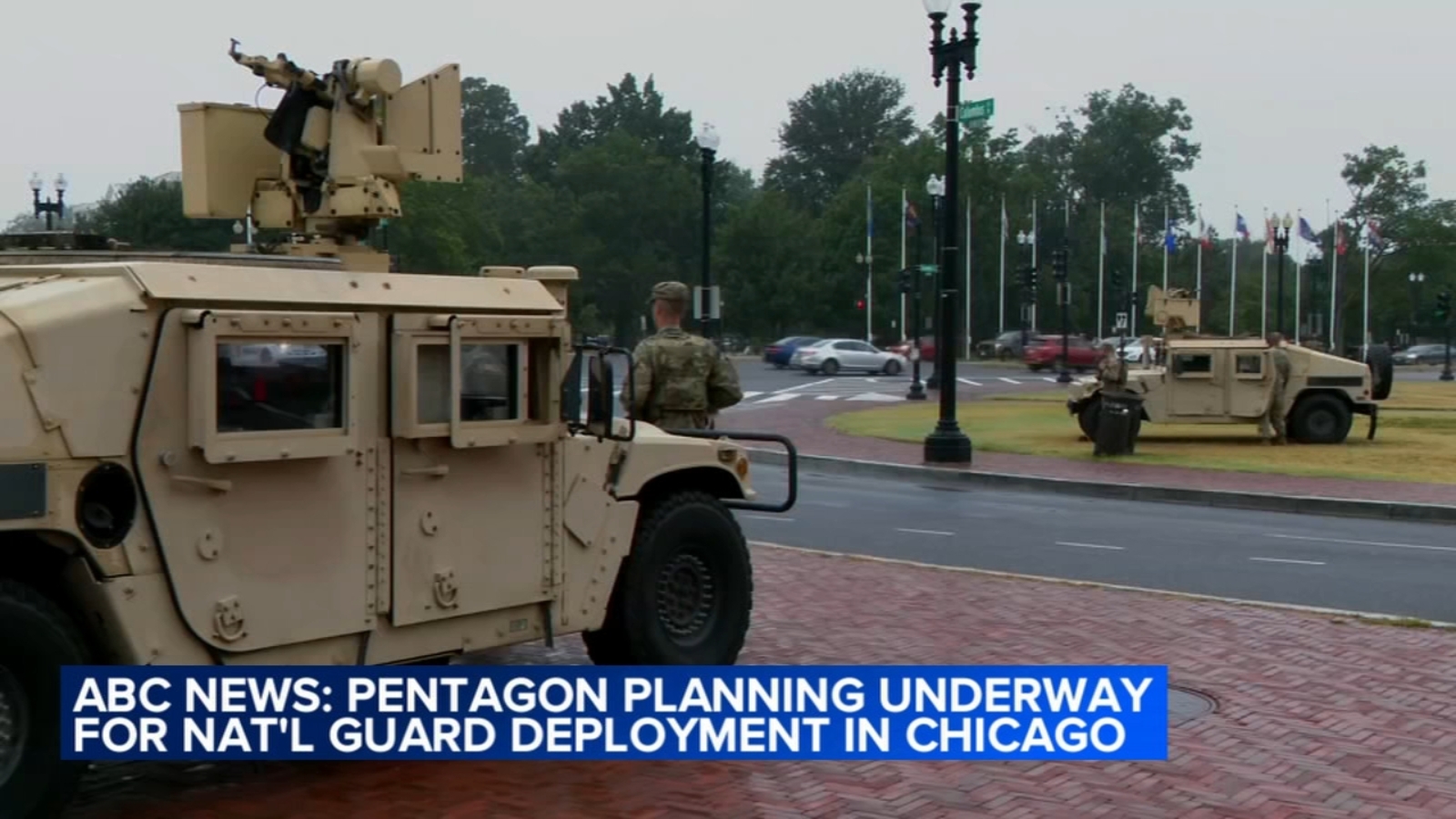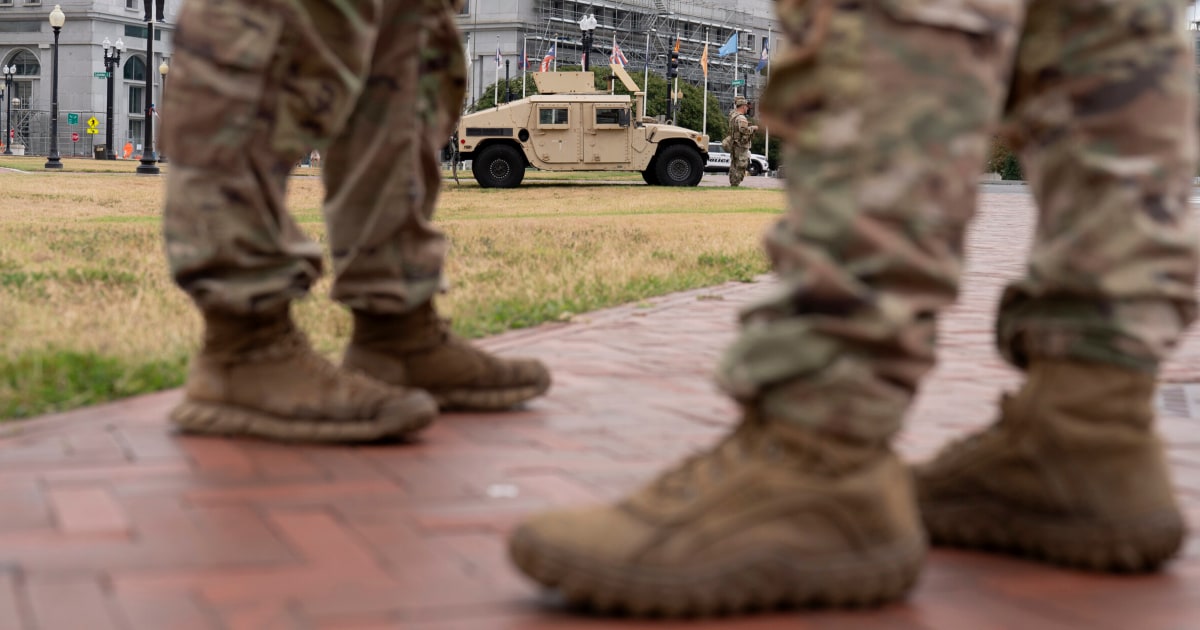Chicago Mayor Orders National Guard to Unmask
#chicago #national_guard #protests #police_brutality #racial_injustice

Introduction
In the midst of nationwide protests against police brutality and racial injustice, Chicago Mayor Brandon Johnson has issued an executive order that would require the National Guard to unmask if deployed in the city. This action comes after President Trump threatened to send in the National Guard to quell the protests. Mayor Johnson has made it clear that he believes the Chicago Police should answer to City Hall, not the National Guard.
Key Details
The executive order states that any National Guard troops deployed in Chicago must follow the same rules and regulations as the Chicago Police, including unmasking. Mayor Johnson has also urged President Trump to "stand down" and not send in the National Guard, as their presence could escalate the situation and potentially lead to further violence. This is in line with other mayors and governors across the country who have spoken out against the use of the National Guard in their cities.
Impact
The decision by Mayor Johnson to issue this executive order highlights the tension between local and federal authorities during these protests. It also brings attention to the relationship between the National Guard and local law enforcement. Many have raised concerns about the use of military force against civilians and the potential for excessive force. Mayor Johnson's order emphasizes the importance of local control and accountability in maintaining order and protecting the rights of citizens.
About the People Mentioned
Donald Trump
Donald John Trump, born June 14, 1946, in Queens, New York, is an American businessman, media personality, and politician. He graduated from the University of Pennsylvania’s Wharton School in 1968 with a degree in economics. In 1971, he took over his family’s real estate business, renaming it the Trump Organization, through which he expanded into building and managing skyscrapers, hotels, casinos, and golf courses. Trump gained widespread fame as the host of the reality TV show *The Apprentice* from 2004 to 2015, which helped establish his public persona as a successful entrepreneur. Trump entered politics as a Republican and was elected the 45th president of the United States, serving from 2017 to 2021. His presidency was marked by significant policy actions including tax cuts, deregulation, the appointment of three Supreme Court justices, renegotiation of trade agreements (notably replacing NAFTA with the USMCA), and a focus on immigration control including border wall expansion. He withdrew the U.S. from international agreements such as the Paris Climate Accord and the Iran nuclear deal, and engaged in a trade war with China. His administration’s response to the COVID-19 pandemic was criticized for downplaying the virus’s severity. Trump was impeached twice by the House of Representatives—first in 2019 for abuse of power and obstruction, and again in 2021 for incitement of insurrection—but was acquitted by the Senate both times. After losing the 2020 election to Joe Biden, Trump challenged the results, culminating in the January 6, 2021, Capitol riot. He remains a central figure in American politics, having won the 2024 presidential election and returned as the 47th president in 2025, continuing to promote policies aimed at economic growth, border security, and military strength[1][2][3][4].
About the Organizations Mentioned
Chicago Police
The **Chicago Police Department (CPD)**, established formally in 1855, is one of the oldest modern police forces in the world, tracing its origins back to 1835 when Chicago was authorized to create its own police force[1][2]. Initially a small group of constables serving a population of about 3,200, the department underwent major reorganization in 1855 under Chief Cyrus P. Bradley, who combined day and night watches, increased the force sixfold, introduced uniforms, and divided the city into precincts to improve efficiency and professionalism[1][2][4]. Historically, the CPD has been pivotal in pioneering policing innovations. Early milestones include the creation of the first Detective Division in 1860, the introduction of patrol wagons in 1881, motorized squad cars in 1908, and police patrol boats and motorcycles by 1910. The department also initiated radio communications in 1929, cooperating with the Chicago Tribune to broadcast to squad cars[3][4]. The mounted police unit, established in 1906, reflected the department's evolving crowd control tactics and was re-established in 1974 due to popular demand[3]. The CPD’s social history is marked by gradual diversification and inclusion. Women first joined as matrons in 1885, with formal policewomen appointed in 1913. Grace Wilson became the first Black female officer in 1918, and restrictions on women serving in patrol roles were lifted only in 1974[3][6]. Recruitment historically involved political influence and focused on immigrant communities, especially Irish in the 19th century, with formal hiring standards evolving by the late 19th century[2][5]. Currently, the CPD serves a city of nearly three million residents, tasked with law enforcement, crime prevention, and public safety. It faces ongoing challenges related to accountability and reform, highlighted by decades of scrutiny and a recent consent decree aimed at improving lawful conduct an
City Hall
The term **"City Hall"** generally refers to the central administrative building or headquarters of a city government, housing elected officials and various municipal departments responsible for managing local government functions. It is not a single organization but a hub for city governance, including legislative, executive, and administrative branches. City Hall typically encompasses the **Mayor’s office**, the **City Council chambers**, and offices for key officials such as the **City Manager**, **City Attorney**, and department heads overseeing public services like police, fire, public works, planning, and finance. The Mayor is often elected by city residents and appoints department heads, while the City Council enacts ordinances, sets policies, and supervises city operations[1][2][4]. Historically, City Halls represent the evolution of municipal governance, reflecting the city's growth and administrative complexity. In charter cities like many in California, City Hall operates under a local constitution (the city charter), allowing greater autonomy in managing municipal affairs compared to general law cities governed primarily by state statutes[2]. Key achievements associated with City Halls include the implementation of local laws, urban planning, public safety enhancements, and community services that improve residents' quality of life. Technological advancements in city management, such as digital government services, city data analytics, and cybersecurity initiatives, have increasingly become integral to City Hall operations, driving efficiency and public engagement[5]. Currently, City Halls across major U.S. cities function as complex organizational ecosystems with numerous specialized departments, commissions, and advisory boards. For example, San Francisco’s City Hall includes 11 elected supervisors and a mayor who appoints most department heads, supported by commissions advising various departments[1]. Los Angeles’ City Hall oversees numerous departments from public safety to economic development, emphasizing citizen commissions and charter departments[3]. Notable aspects of City Hall include its role as a civic symbol, a center for public policy decision-making, and a facilitator of community engagement. Innovations in governance, transparency, and technolog
















